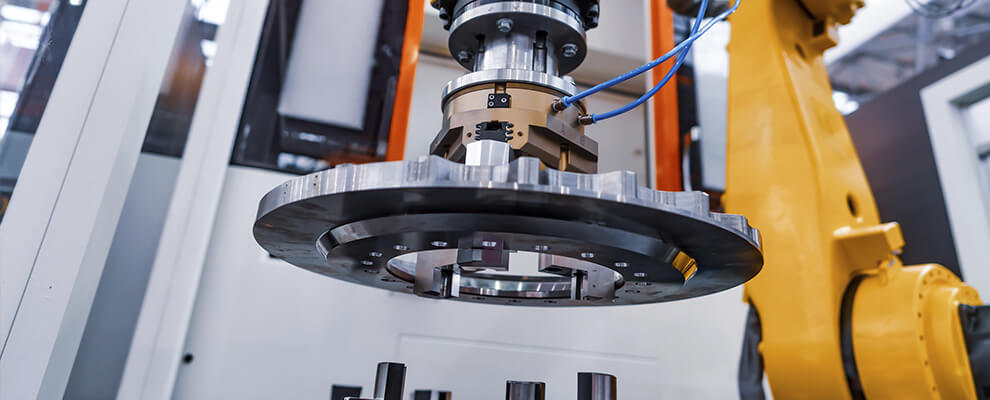The industrial equipment sector has been an important aspect of the world economy for a long time. It encompasses a wide range of products and services, including heavy machinery, tools, and automated systems, which are widely used in various industries such as manufacturing or construction.

As technology continues to evolve and improve, the industrial equipment sector is poised to see significant changes in the coming years. There are some disruptive industrial equipment technologies that companies need to look out for and implement in their production processes if they want to remain competitive.
Artificial Intelligence (AI) and Machine Learning (ML)
One of the biggest technological advancements in recent times, AI and ML are set to revolutionize the industrial equipment sector. AI-powered machines and systems can analyze vast amounts of data, identify patterns, and make predictions, leading to improved decision making, increased efficiency, and reduced downtime. AI-powered industrial equipment can also learn from its own experiences, improving its performance over time.
Industrial Internet of Things (IIoT)
The Internet of Things (IoT) has already transformed many industries, and the industrial sector is no exception. The Industrial Internet of Things (IIoT) uses IoT technology in the industrial equipment sector, allowing for real-time monitoring, data collection, and analysis. This will lead to improved maintenance, predictive analytics, and also improved decision making. The IIoT will also enable remote monitoring of industrial equipment, reducing the need for on-site technicians and increasing efficiency.
3D Printing
3D printing technology has been around for a while, but its application in the industrial equipment sector is still in its infancy. 3D printing has the potential to change the way industrial equipment is designed, manufactured, and distributed. It will enable faster and more cost-effective production of custom parts and components, reducing the need for extensive inventories and reducing lead times.
Robotics and Automation
Robotics and Automation have already had a significant impact on the industrial equipment sector, but advancements in these technologies will take this even further. The development of collaborative robots, which can work alongside human operators, will allow for a more flexible and efficient workforce. Autonomous vehicles and drones will also play a big role in the future, helping to improve safety, reduce downtime, and increase efficiency.
Augmented Reality (AR) and Virtual Reality (VR)
AR and VR technology is set to revolutionize the way industrial equipment is designed, manufactured, and operated. AR and VR can be used to create interactive and immersive experiences for operators, reducing the need for physical prototypes and improving the design process. AR and VR can also be used for operator training, allowing for hands-on experiences without the need for physical equipment. In this respect, the connected worker solution has become one of the essential aspects of the Industry 4.0 Factory of the Future approach, as it enhances work safety and training, optimizing remote maintenance through remote troubleshooting a malfunctioning asset in real time.
Blockchain
Blockchain technology has the potential to revolutionize the way industrial equipment is bought and sold, reducing the need for intermediaries and increasing transparency. Blockchain can be used to track the supply chain of industrial equipment, ensuring that parts and components are authentic and of high quality. It can also be used to create smart contracts, automating the buying and selling process and reducing the risk of fraud.
Wireless charging
Wireless charging technology is set to revolutionize the way industrial equipment is powered, reducing the need for cords and cables and increasing efficiency. Wireless charging will allow for more flexible and efficient charging of batteries, reducing downtime and improving the overall performance of industrial equipment.
These are just a few of the disruptive future industrial equipment technologies that are set to change the way the sector operates. As technology continues to evolve, it is important for companies to keep up with the latest developments and to invest in the technologies that will help them stay ahead of the competition.
